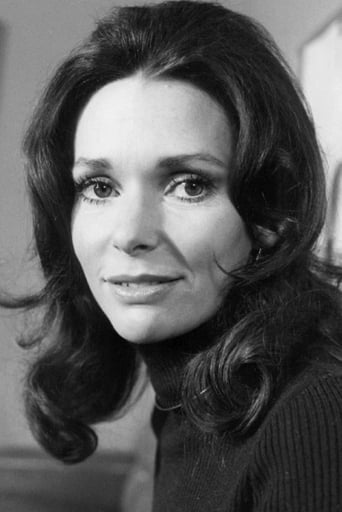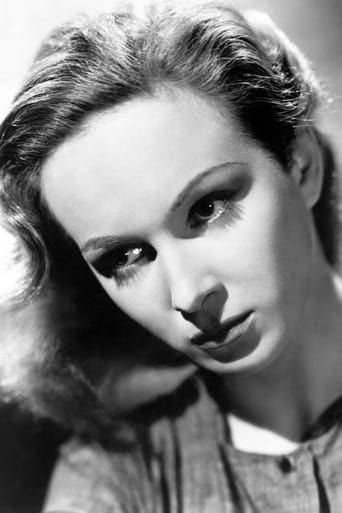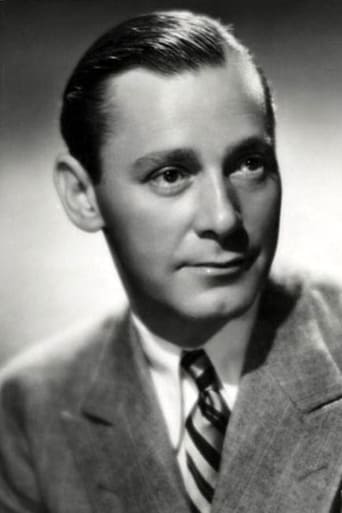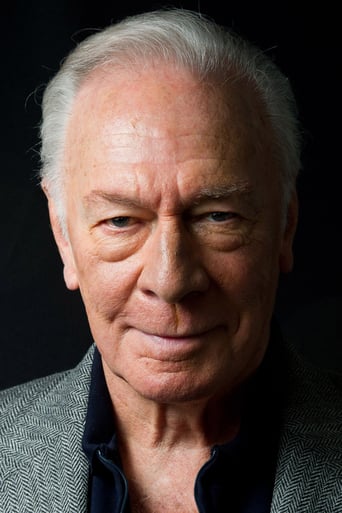Cubussoli
Very very predictable, including the post credit scene !!!
Megamind
To all those who have watched it: I hope you enjoyed it as much as I do.
Bergorks
If you like to be scared, if you like to laugh, and if you like to learn a thing or two at the movies, this absolutely cannot be missed.
Billy Ollie
Through painfully honest and emotional moments, the movie becomes irresistibly relatable
l_rawjalaurence
As several reviewers have remarked, the chief attraction of Sidney Lumet's film lies in its evocation of New York in the mid-Fifties. From its opening tracking shots of Broadway, showing the popular shows of the time (including SEPARATE TABLES), to the regular establishing shots of the cars and taxicabs moving endlessly up and down, the film makes us aware of the fact that the action will take place in a confined location, wherein everyone knows everyone else.In this kind of environment, egos are both fragile yet inflated. Joan Greenwood's Rita Vernon offers a prime example - someone who believes in her abilities as an "ACTOR," yet perpetually haunted by the belief that she could somehow lose her stardom. Hence her relentless pursuit of producer Lewis Easton (Henry Fonda). The sequence where they negotiate her future contract, while locked in a passionate embrace, is masterly, revealing how personal and professional issues are inseparable.As the would-be star "Eva Lovelace" (the falseness of the name reveals how artificial Broadway life actually is), Susan Strasberg represents a breath of fresh air. While certainly not possessed of the acting- skills of her illustrious costars, she possesses a sincerity of purpose that proves extremely attractive. Her rendition of the balcony-scene from ROMEO AND JULIET at Easton's first night party is strangely haunting. Director Sidney Lumet understands this, which helps to explain why he shoots the sequence in a series of close-ups, focusing our attention on Strasberg's open countenance as she looks straight into Easton's face.The story is a familiar one, as Lovelace takes over from Vernon in the lead role of a new play written by Joe Sheridan (Christopher Plummer) and shoots to stardom after the first night. Lumet wisely chooses not to focus on the performance itself, but rather on the backstage reactions: Strasberg's wide-eyed expression of disbelief at her achievement is contrasted with the superficial reactions of miscellaneous theatrical hangers-on, who come to congratulate her with the usual platitudes ("Dahling, you were marvelous, always though you'd make it"). The film's ending is perhaps too drawn-out, consisting of an extended dialog between Lovelace and Easton, but what emerges most tangibly is the fact that Lovelace has no real need to go and celebrate at Sardi's (as directed by theatrical custom). She is happy just to stand on the stage, looking out at the auditorium and reflect on what happened during the last two hours or so. Although very much implicated in the world of Broadway falseness, Easton comes to understand her state of mind and blows her a kiss ("just from me"). Sometimes sincerity can triumph over artifice.STAGE STRUCK is full of intertexts: Eva's name is a direct sonic reference to Joseph L. Mankiewicz's ALL ABOUT EVE (1950), another classic exposé of Broadway hypocrisies. At one point elderly actor Robert Hedges (Herbert Marshall) advises Lovelace to complete her education at the Actors' Studio, which just happened to be run by Strasberg's real-life father Lee Strasberg. The basic plot of STAGE STRUCK might be familiar - as other reviewers have remarked, it is a remake of MORNING GLORY (1933) - but there are plenty of ingredients within the ninety-minute running-time to interest all types of viewer.
writers_reign
As one of those people who love theatre as much as I do cinema I'm always ready to enjoy a film ABOUT the theatre and although it's difficult if not impossible to eclipse The Country Girl and All About Eve, there have, over the years, been a few half-decent stabs. Stage Struck, alas, is not one of them. Susan Strasberg was outstanding in Picnic but was never able to replicate the magic with which she invested her performance as Kim Novak's kid sister in any subsequent film role and her Eva Lovelace in Stage Struck verges on the embarrassing. There's one 'in' joke which would, in 1958, have been reasonably topical when Eva dismisses the Actor's Studio out of hand, whilst, of course, Strasberge the actress, is also the daughter of Lee Strasberg, a man associated indelibly with the Actor's Studio. Other people here have remarked on the lack of chemistry on screen but at least one noted the obvious warmth between Strasberg and Herbert Marshall and had he played the Fonda role the film might have stood a chance. Certainly worth a look especially if you've seen the original, Morning Glory, with Katherine Hepburn in the Strasberg role.
J B Thackery
I had to keep reminding myself that this film was made in 1958, not in our day. It is "timelessly modern." It's not just another fantasy film about the backstage theater world. The acting is so real and emotions so true, you get caught up in every scene as if you are part of the film. Add the excellent photography and cinematography which seem ahead of their time, and you think you are watching a movie made half a century later.This is not all dreamy, and it is not all hardline: It is a perfect blend of both the aspirations of the heart, and the realities people must overcome to achieve them.The story itself has true personal appeal, as it combines dreams of stardom with down-to-earth human feeling. The directing and acting prove that a halfway decent script can be brought to life, exuding an appeal uncommon in any film of any era.Moreover, this is a fine example of how acting and directing can make a movie entertaining MINUS sleeze and vularity.
RanchoTuVu
Susan Strasberg plays Eva Lovelace, an aspiring Broadway actress possessed by some theatric god that directs her to precisely pronounce and deliver each and every word with impeccable timing. She comes to New York by way of Vermont where she performed in numerous summer stock productions and her persistence and personality capture the attention of playwright Joe Sheridan (Peter Cushing) and actor Robert Marley Hedges (Herbert Marshall). Producer Lewis Easton (Henry Fonda) tells her to study the Actor's Studio (would that be Lee Strasberg's school of method acting?) but she doesn't want to dilute her gift by having it altered in an acting school. Strasberg's performance makes and at times almost breaks this picture. It manages to annoy and captivate, often simultaneously. When she delivers Juliet's lines on the stairway of Easton's swank townhome after drinking four or five glasses of Champaigne in front of a party of theater luminaries, it knocks you out. It is as if Eva Lovelace is playing Susan Strasberg. In any event, she (Strasberg) has an unusual beauty and sincerity that come shining through in spite of the theatrics.




